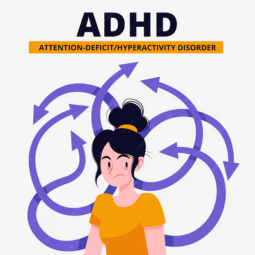We Provide Help for a range of Mental Health Concerns
Overview
ADHD management
Attention-deficit/hyperactivity disorder (ADHD) is a neurodevelopmental disorder that affects both children and adults. It is characterized by a persistent pattern of inattention and/or hyperactivity-impulsivity that interferes with functioning or development across multiple settings, such as home, school, or work.
Here are some ways to help manage ADHD:
- Medication: Stimulant medications such as methylphenidate (e.g., Ritalin, Inspiral, Concerta) are commonly prescribed to help alleviate symptoms of ADHD by increasing neurotransmitter levels in the brain, improving attention, concentration, and impulse control. Book an appointment with our psychiatrist, Dr. Aditi Hinge, who will tailor the treatment plan as per your need.
- Behavioral therapy: Behavioral therapy, such as behavior modification techniques, parent training programs, or cognitive-behavioral therapy (CBT), can help individuals with ADHD learn coping strategies, organizational skills, time management techniques, and problem-solving strategies to manage symptoms and improve functioning.
- Educational interventions: Implementing educational accommodations and modifications in school or work settings, such as extended time on tests, preferential seating, or breaking tasks into smaller steps, can help individuals with ADHD succeed academically or professionally.
- Lifestyle modifications: Encouraging healthy lifestyle habits such as regular exercise, balanced nutrition, adequate sleep, stress management techniques (e.g., mindfulness meditation, relaxation exercises), and minimizing distractions can help individuals with ADHD manage symptoms and improve overall well-being.
- Supportive services: Connecting individuals with ADHD with supportive services such as support groups, peer mentoring programs, or ADHD coaching can provide valuable emotional support, validation, and understanding, as well as opportunities for shared experiences and coping strategies.
- Parent education and support: Providing education and support to parents of children with ADHD can help them better understand the condition, learn effective parenting strategies, and navigate challenges associated with raising a child with ADHD.
- Multimodal treatment approach: Combining medication management with behavioral therapy, educational interventions, and lifestyle modifications often yields the most effective outcomes in managing ADHD symptoms and improving overall functioning.
It’s important to approach each individual with ADHD holistically and tailor treatment to their specific needs, preferences, and circumstances. By providing comprehensive, personalized support and treatment, we can help individuals with ADHD manage their symptoms, improve their quality of life, and achieve greater levels of success and well-being.


